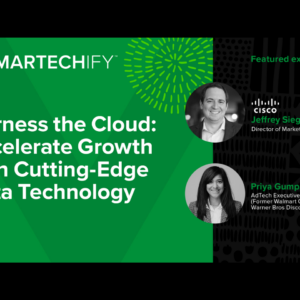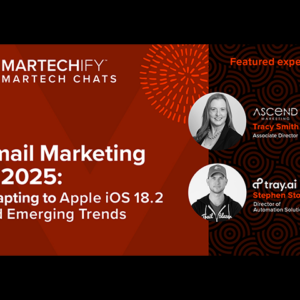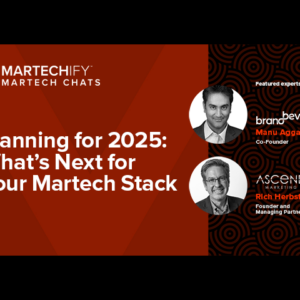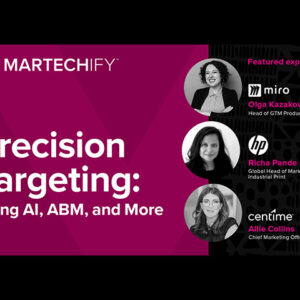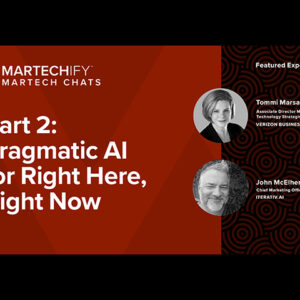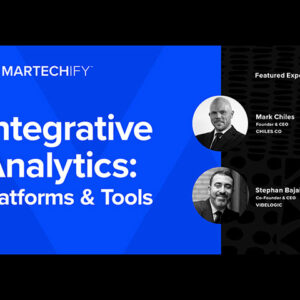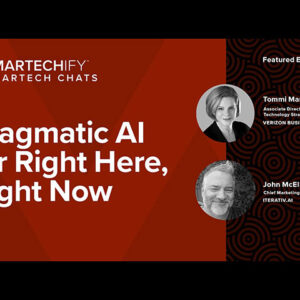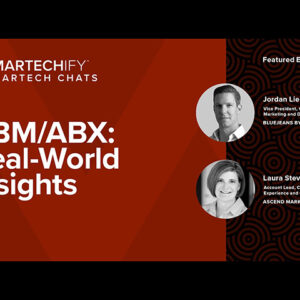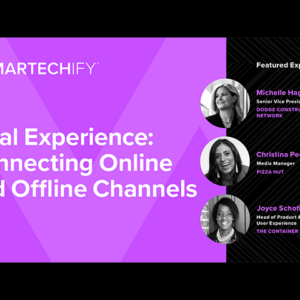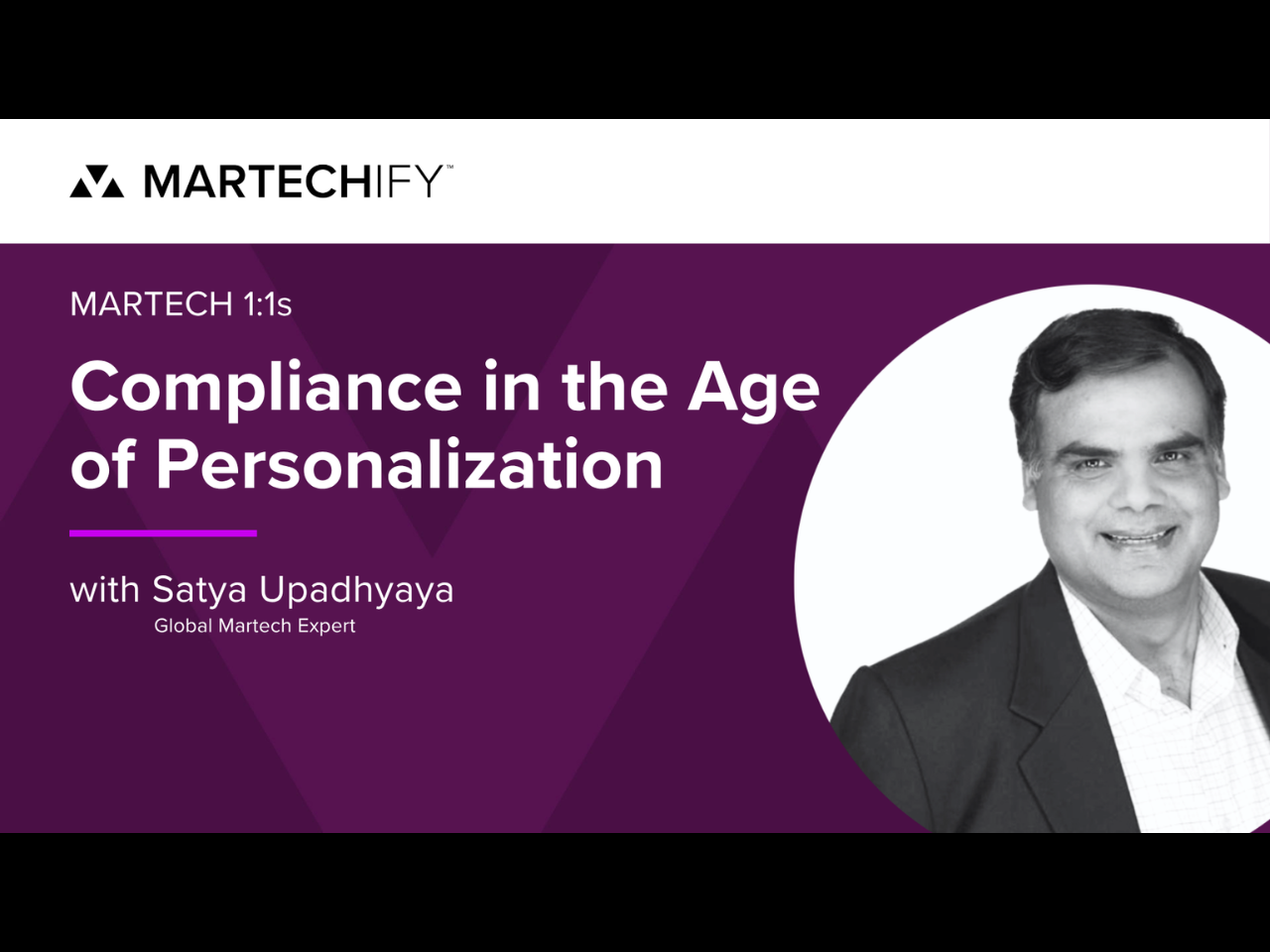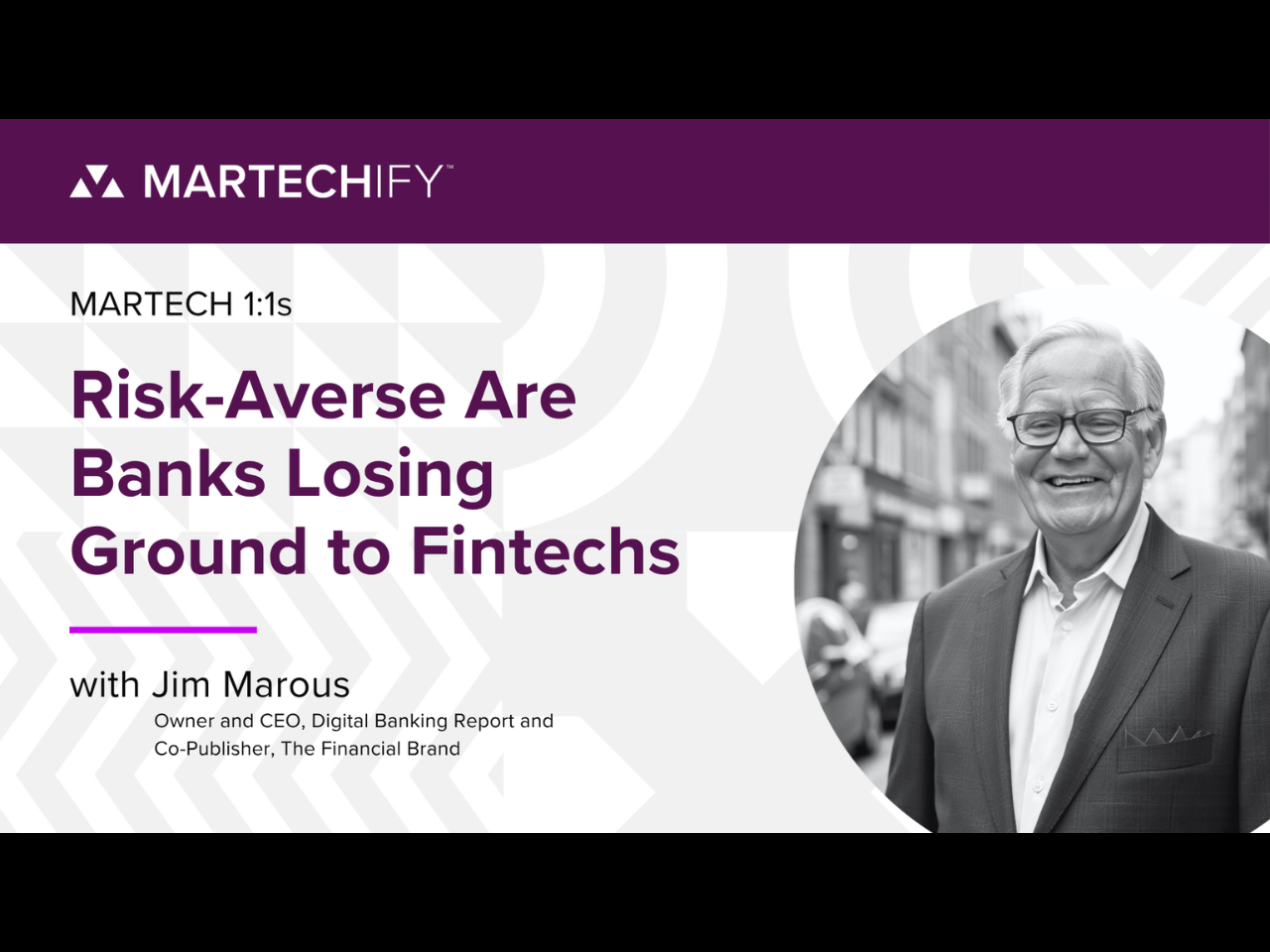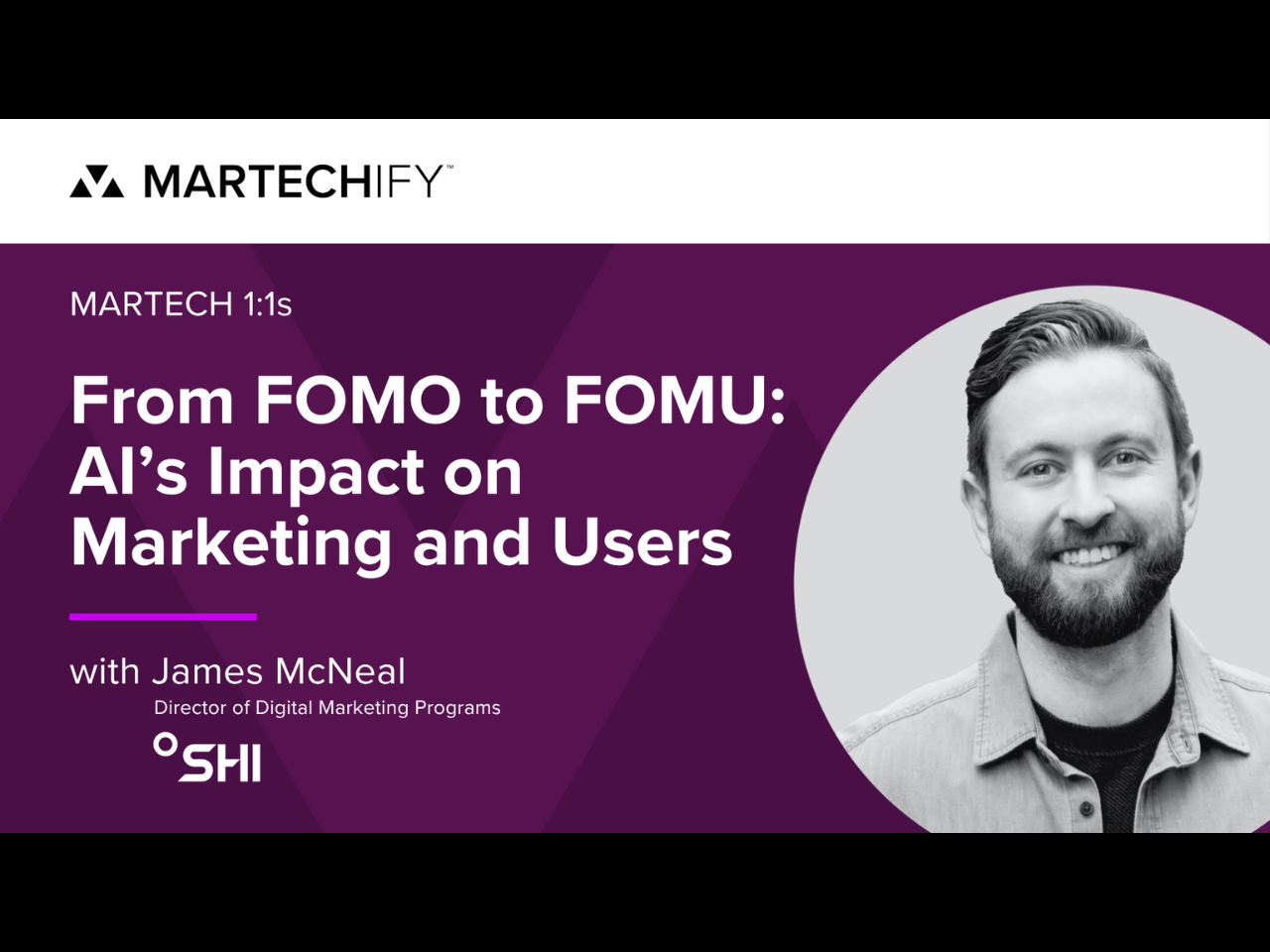Beyond the Hype: Dr. Joseph Dr. Yun on the Real-World Implications of AI in Martech, Economy, and Human Biology
- Dr. Joseph Yun, Director of Artificial Intelligence Enablement at the University of Pittsburgh and CEO and Co-Founder of bluefoxlabs.ai
- AI and Automation, Content Strategy and Marketing, Digital Transformation, Other Martech, Strategy and Trends
What happens when a research professor, tech entrepreneur, and AI enabler converges into one person? You get Dr. Joseph Yun, Director of Artificial Intelligence Enablement at the University of Pittsburgh and CEO and Co-Founder of bluefoxlabs.ai, a voice of both deep technical expertise and urgent pragmatism in the AI revolution.
In our recent conversation, Dr. Yun pulled back the curtain on how generative AI is reshaping everything from marketing operations to human biology, and why ignoring it is no longer an option.
In our recent conversation, Dr. Yun pulled back the curtain on how generative AI is reshaping everything from marketing operations to human biology, and why ignoring it is no longer an option.
Check out the full interview with Dr. Joseph Yun, where he discusses how generative AI is reshaping our lives, from jobs to human biology.
AI that writes code (and its own future)
Dr. Yun began with a compelling insight: generative AI’s most powerful function isn’t art or chat—it is computer programming. And that has profound implications.
“One of the best things that Gen AI does is program, computer program,” Dr. Yun explained. “Now, that might seem neutral to people. But that’s actually a huge deal because most of our lives are controlled by computer programming.”
He points out that many people are unaware of just how fast the feedback loop is accelerating. “If generative AI can program and generative AI is itself a program, then you could imagine that it would accelerate itself by programming itself to become better. And that’s exactly what’s happening at tech companies. That’s why people feel like… ChatGPT just released something new last week. How did they release something new again this week? Well, it’s because humans are not doing the programming largely anymore. It is actually the systems programming themselves.”
This recursive speed loop is why, he says, “whatever people think with regards to the speed of this, they’re probably wrong. They’re probably thinking too slow.”
“One of the best things that Gen AI does is program, computer program,” Dr. Yun explained. “Now, that might seem neutral to people. But that’s actually a huge deal because most of our lives are controlled by computer programming.”
He points out that many people are unaware of just how fast the feedback loop is accelerating. “If generative AI can program and generative AI is itself a program, then you could imagine that it would accelerate itself by programming itself to become better. And that’s exactly what’s happening at tech companies. That’s why people feel like… ChatGPT just released something new last week. How did they release something new again this week? Well, it’s because humans are not doing the programming largely anymore. It is actually the systems programming themselves.”
This recursive speed loop is why, he says, “whatever people think with regards to the speed of this, they’re probably wrong. They’re probably thinking too slow.”
Jobs in jeopardy: The looming economic impact
Dr. Yun references a stark prediction from Anthropic’s CEO: “He envisions a future where both this technology enables curing of all diseases… but then he also sees 10 to 20 percent unemployment… which is like Great Depression level unemployment.”
And he offers a reality check on the overhyped push for universal coding skills: “I don’t think everybody’s going to need to know how to code because even today there’s a concept called vibe coding. You just tell the large language model what type of program you want, and it just makes it.” In one personal example, Dr. Yun described using AI to create an app in languages he never formally studied. “I was coding in React and Node.js… It didn’t even show me the code. It just made the thing I was asking for it to make.”
And he offers a reality check on the overhyped push for universal coding skills: “I don’t think everybody’s going to need to know how to code because even today there’s a concept called vibe coding. You just tell the large language model what type of program you want, and it just makes it.” In one personal example, Dr. Yun described using AI to create an app in languages he never formally studied. “I was coding in React and Node.js… It didn’t even show me the code. It just made the thing I was asking for it to make.”
Changes in marketing and martech
As someone with a PhD in informatics and a strong research background in marketing and advertising, Dr. Yun has a long view of marketing’s digital transformation. “I was one of the first people, at least in academia, that was doing research and writing papers on what happens to advertising and marketing as it becomes more computational.”
Now, with content automation on the rise, Dr. Yun foresees a deeper crisis: “It’s become so computationally complex… with misinformation… and AI… people have no chance.” His prediction? “Advertising and marketing are going to start to occur in curated, very trusted communities… and people are absolutely going to want to meet in person more.”
He elaborated, “What I believe will start to happen now is that you cannot trust online and computational communications. Therefore, online advertising is going to start to advertise to other online advertising. It’s going to be this algorithmic thing.”
For online communities the future is an online space where “every single person actually knows each other…And you’re not allowed into this group unless you met that person and they are vetted… And then advertising and marketing will occur in there and it will be much better ROI.”
For in-person events, “the companies that can create these amazing experiences and environments for people to get together, it’s going to be also a marketing opportunity, those things are going to grow and they’re going to thrive, because people are not going to be able to trust what’s online.”
Rather than commercials, he says, the future will be about connection and experience: “I think this is also why you just see this wave of… ‘the Taylor Swift’ phenomenon… It’s her experience that people are drawn to.”
Now, with content automation on the rise, Dr. Yun foresees a deeper crisis: “It’s become so computationally complex… with misinformation… and AI… people have no chance.” His prediction? “Advertising and marketing are going to start to occur in curated, very trusted communities… and people are absolutely going to want to meet in person more.”
He elaborated, “What I believe will start to happen now is that you cannot trust online and computational communications. Therefore, online advertising is going to start to advertise to other online advertising. It’s going to be this algorithmic thing.”
For online communities the future is an online space where “every single person actually knows each other…And you’re not allowed into this group unless you met that person and they are vetted… And then advertising and marketing will occur in there and it will be much better ROI.”
For in-person events, “the companies that can create these amazing experiences and environments for people to get together, it’s going to be also a marketing opportunity, those things are going to grow and they’re going to thrive, because people are not going to be able to trust what’s online.”
Rather than commercials, he says, the future will be about connection and experience: “I think this is also why you just see this wave of… ‘the Taylor Swift’ phenomenon… It’s her experience that people are drawn to.”
The rise of the “trust-based influencer” in B2B
Dr. Yun sees a new kind of influence taking shape—not on TikTok, but in executive boardrooms. “Businesses do business with us… because the CEOs or the owners want to meet me. They don’t want a Zoom call. They don’t want a Microsoft Teams call. They want to see me in person, verify that I’m real and verify that I align with the values that they have.”
He describes a future where trusted individuals, not marketing campaigns, drive enterprise decisions: “It’s not how well you talk… It’s going to be, is your character trustworthy? Can I trust you in what you say you can do; you will do it?”
He describes a future where trusted individuals, not marketing campaigns, drive enterprise decisions: “It’s not how well you talk… It’s going to be, is your character trustworthy? Can I trust you in what you say you can do; you will do it?”
The human mind on autopilot?
Dr. Yun also sees risks of mental decline in an AI-dependent world. “We’re outsourcing everything… even GPS now simplified our driving directions so much.”
Recalling a discussion with a New York museum curator, he said, “Gen AI has no taste… somebody still has to say, that’s good and that’s not good.” The implication: critical evaluation will become a premium skill—and potentially a lost art.
Recalling a discussion with a New York museum curator, he said, “Gen AI has no taste… somebody still has to say, that’s good and that’s not good.” The implication: critical evaluation will become a premium skill—and potentially a lost art.
Biohacking and bionic futures
Dr. Yun believes we are on the verge of radical bio-integration. “I think there’ll be medical advances where human life will be extended to 100 to 200 years. I genuinely believe that.”
He foresees brain chips as an eventual norm: “Once you do that, that will upgrade our ability to think.” Whether it’s wearables or direct implants, Dr. Yun says it’s coming: “We are going to step into a world where almost everybody will implant some kind of device into their body, likely the brain.”
He foresees brain chips as an eventual norm: “Once you do that, that will upgrade our ability to think.” Whether it’s wearables or direct implants, Dr. Yun says it’s coming: “We are going to step into a world where almost everybody will implant some kind of device into their body, likely the brain.”
The shadow of cybersecurity
What scares him most isn’t automation or implants: it’s the vulnerability underneath. “This technology is so hackable because none of us fully understand. Anybody that thinks that they fully understand how these large language models really work… it’s just beyond our understanding.”
Dr. Yun warns, “Once they start to get incorporated with our bodies, I can understand why… people, say, want to disconnect completely from everything.”
Dr. Yun warns, “Once they start to get incorporated with our bodies, I can understand why… people, say, want to disconnect completely from everything.”
Final thoughts: Jump on the AI bandwagon now, don’t wait
“This is not slowing down. This will have incredible positive impacts, but it will absolutely have negative impacts as well,” Dr. Yun said.
He compared AI adoption to learning a new language: “When you’re a kid… it is easy because your brain just works that way. When you’re older, it’s so hard… And at some point in the future, it’s going to become so complicated, that if you didn’t start when you were young, you’re not going to be able to catch up.”
With that reminder, that AI is still in its relative infancy, he urges people to take personal responsibility: “Every single person has to take the responsibility on their own to figure this out.”
Whether you’re in tech, marketing, or a manual trade, Dr. Yun’s message is clear: adapt now, or risk being left behind.
He compared AI adoption to learning a new language: “When you’re a kid… it is easy because your brain just works that way. When you’re older, it’s so hard… And at some point in the future, it’s going to become so complicated, that if you didn’t start when you were young, you’re not going to be able to catch up.”
With that reminder, that AI is still in its relative infancy, he urges people to take personal responsibility: “Every single person has to take the responsibility on their own to figure this out.”
Whether you’re in tech, marketing, or a manual trade, Dr. Yun’s message is clear: adapt now, or risk being left behind.

